Books Of 2014
Inspired by my pal Michael I’ve decided to do a brief review of every book I read this year. Hopefully you’ll find it interesting, maybe discover a couple of new books. If nothing else, it’ll be interesting for me to organise a year’s worth of reading habits in one place.
A few observations first:
This year was the first time in a while that I’ve read a significant volume of fiction. This list includes 14 fiction and 7 non-fiction titles, which is more of the former than I would have guessed, but much less of the latter.
Another major shift for me has been the move to e-books. I read only one paper/printed book this year, and it was given to me as a gift. My own book purchasing habits have moved almost entirely to e-books.
And of course, this year my own debut novel The Disillusioners was published, which I read multiple times throughout the editing process.
Fiction
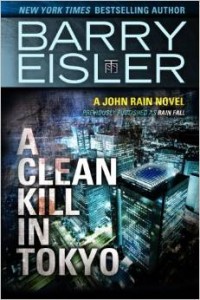
The debut novel by a former CIA officer, A Clean Kill In Tokyo introduces assassin John Rain, revered for his ability to make his murders look like they were the result of natural causes. The Rain novels are essentially spy novels even though Rain is an assassin rather than a spy. I very much enjoyed the attention to detail about the actual routines of surveillance and counter-surveillance that Eisler employs. On the other hand, at times it just felt like Eisler was just trying to show off how much he knew, to the detriment of the story. A good but flawed novel.

Another Rain novel, this time with three additional assassins by his side. The overarching plot strained my suspension of disbelief (high ranking U.S. officials stage increasingly elaborate terrorist attacks on U.S. soil in order to allow a dictatorial coup d’etat), but Eisler’s attention to the details of spycraft remains compelling. One particular focus of this novel is how difficult it is to remain undetectable and untraceable when a modern state has you in its sights. Unlike A Clean Kill In Tokyo, there’s far less time spent showing off; the narrative moves at a very brisk pace from start to finish.
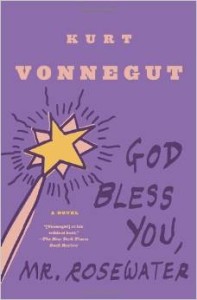
This year I decided to try reading some of the Vonnegut novels that I hadn’t read before. God Bless You, Mr. Rosewater is a mixed bag. On the one hand, it does contain much of Vonnegut’s deep compassion, his razor-sharp wit, and his general zaniness. On the other hand, there was a bit too much of a focus on the day-to-day lives of the characters at the expense of the bigger picture. A novel about how little is actually done by the rich to deserve their wealth, and how easily it might have been otherwise.
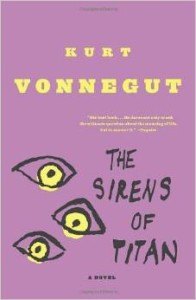
I’m not really a fan of Vonnegut’s pre-Slaughterhouse Five novels, so unsurprisingly this one didn’t really work for me. There are moments where the things that I love about Vonnegut shine through; some of the prose is just delightful, and the twist at the end is vintage Vonnegut. But much of what leads up to the end is disappointing. The section on Mars, in particular, felt to me like it dragged on and on, and added next-to-nothing to the story. Almost worth recommending just for the final act, but not a great read up until that point.
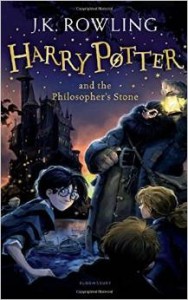
Surprisingly, this turned out to be one of my favourite things that I read this year. The story suffers from too much fantasy cliche, as though Rowling was determined to stuff every last bit of other fantasy universes into her own – look, here’s a goblin! and a troll! and a ghost! and a centaur! and a vampire! and so forth. But the writing itself is truly top-notch. Rowling’s skill with prose is evident from the opening passages. The characters are also very well drawn. The story is at its best when it focuses on the relationships between the characters rather than on their hijinx. What’s perhaps most interesting to me is that I suspect I would not have enjoyed Harry Potter at all when I was closer to the age of its intended audience. I had friends who adored the books when they first came out, but they sounded like a dreadful bore to me, as I wanted to read “serious” novels. Now, older and with a better ability to appreciate a well-told story without needing it to also help define my identity, I really enjoyed reading this.
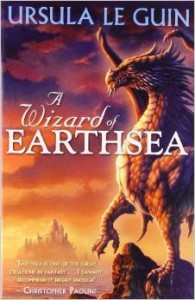
I read this prior to Harry Potter, and it was due to an article suggesting that there were similarities between Earthsea and Potter that I decided to give Potter a shot. Wizard of Earthsea is the story of Ged, a young rural boy who goes off to a wizarding school and begins on his path to becoming the greatest mage in the world. I always feel like I ought to enjoy Le Guin more than I do. She sounds like an author whose novels I would really enjoy. But I didn’t really enjoy this one all that much. The novel covers such an astonishing array of events in such a small number of words that I never felt like I had a chance to get to know any of the characters, places, or events. There were also far too many just so events, where exceptionally unlikely events are hand waved away as “Well Ged is powerful and the world is mysterious.”
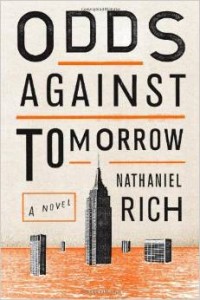
A novel about a man whose job is to convince large corporations that a wide array of terrible disasters could befall them, and that they need to invest in a complicated limited liability insurance to protect themselves against tragedy. Has a great premise, but is tremendously flawed in its execution. The characters are all poorly drawn, especially the female characters, of whom there are only two, who only serve as projections for some element of the central male character. I gave up about half-way through this one. It wastes a great premise by not having it written by Chuck Palahniuk, who could have treated it with the grim, grotesque humour that it demands.
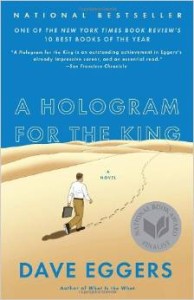
My favourite novel that I read this year. A former executive for the Schwinn bicycle company has become a corporate IT consultant as a result of the hollowing out of the American manufacturing economy. He travels to Saudi Arabia, where he spends most of his time worrying about a presentation he never seems to be allowed to give, while struggling to write a letter to explain to his university-aged daughter why he can no longer afford to help her pay her way through school. The story takes a weird turn about 3/4 of the way through, veering off into a couple of unnecessary diversions, but what comes before is so good that I still strongly recommend reading this novel.
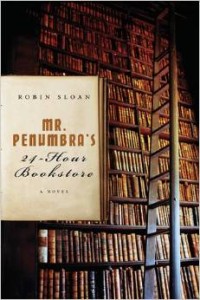
A young, recent university graduate begins working the midnight shift in a bookstore that has a bizarre owner and even more bizarre patrons. Eventually the young man realises the bookstore owner is involved in a centuries-old secret society, and tries to unravel its mystery. My primary problem with this novel was that it just seems to be uncritically in love with everything. Books are great! Friendship is great! Google is great! Making art by hand is great! Making art with computers is great! It’s not even an especially happy novel, just one that seems incapable of turning a critical eye on anything.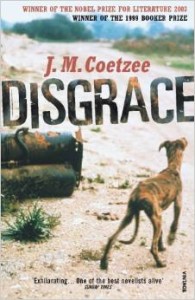
J.M Coetzee, old literature professor, writes about a fictional old literature professor who lusts after his young students. Thoroughly boring. Gave up half-way through. No idea why this novel received such overwhelming critical acclaim. Have to assume literary critics are also awful old literature professors.
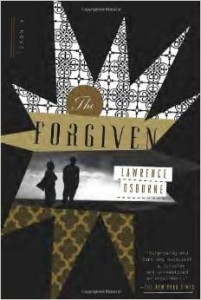
I have mixed feelings about this one, which is about an old, white man who kills a young Moroccan man in a hit-and-run late at night on the way to a lavish party in an old Moroccan castle. The premise is interesting, and the author – who has been employed as an international journalist and lived in Morocco – does a good job of drawing a vivid picture of the location. But the plot meanders and ultimately ends up nowhere. Not bad, but could have been much better.
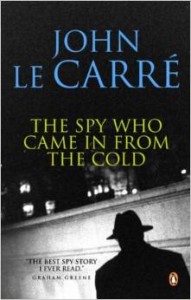
I decided to try reading some spy fiction this year (hence Barry Eisler above as well). I had mixed feelings about this one. The plot is kind of brilliant; entirely logical, entirely plausible, not predictable. But the writing itself was a bit too plain for me, and even though everything comes together in the end, it often feels like nothing is happening for long stretches, especially in the first half.
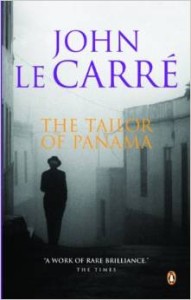
Didn’t really like it. Way too many flashbacks. Way too many diversions. Way too much trying to be “literary”. Gave up half-way through.
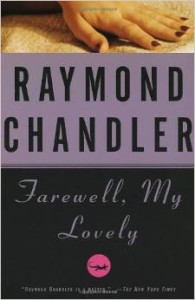
I’ve been a fan of noir films for a while, so I decided to jump into some noir novels as well. I’ve got The Glass Key by Dashiell Hammett on deck, but first up was some Chandler. I really enjoyed this novel. Chandler perfected the archetype of the wise-cracking private eye. Despite the fairly grim subject matter, Farewell, My Lovely is one of the funniest novels I’ve read in a while. The plot also moves along at a very brisk pace. Easy to recommend.
Non-Fiction
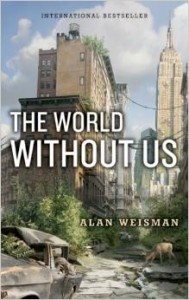
I’m actually in the middle of reading this, but I’ll include it anyway. I love the premise of this book: what would happen to the Earth if humans just suddenly vanished from it? Some of the stories are really interesting, but it mostly seems to be a book about human history and engineering rather than about what would happen in an Earth without us as such. Also, most of the chapters feel like long-form, self-contained journalism (which makes sense, since the writer is a journalist) rather than chapters in a cohesive whole. It’s good, but could have been much better.
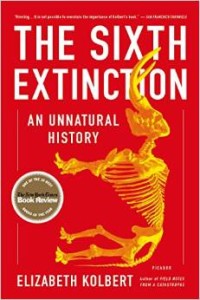
The Sixth Extinction is the best thing I read this year. Over the course of the Earth’s history there have been five mass extinctions in which nearly all species were wiped out. Many people believe we are currently in a 6th mass extinction, caused by humans. Global warming is the most obvious culprit here, but there are many others, including poaching, habitat destruction, and unintended and unforeseen outcomes related to international travel and globalisation. An extremely readable book that covers both the past and the present in an engaging and informative way. Part history, part biology, all fascinating.
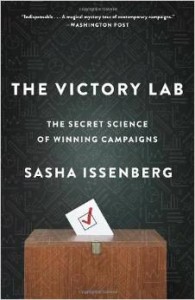
A history of how political campaigns in the U.S. have used evidence and data-driven methodology to improve outcomes on election day. Those of you who are familiar with the stats vs eye-test debate in pro sports will find the battles here very familiar. Some of the older history was quite interesting, but much of the newer techniques being used are kind of frightening. Political parties, especially those of Presidential candidates, are putting an incredible amount of money and effort into building psychological profiles of voters, and they often seem to know voters better than voters know themselves. I found Issenberg focussed too much on the personalities rather than the stories, but some people likely enjoy that approach more than I did.
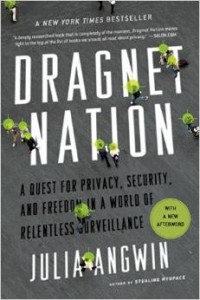
While most of the news about surveillance over the past year or two has been about the programs of the NSA and GCHQ, we’re being tracked virtually all the time by corporations, both online and offline. Dragnet Nation is primarily about that corporate surveillance. One of the most interesting parts of the book is when Angwin attempts to discover what it would take for a person to prevent themselves from being tracked and whether it was actually feasible for a normal person (like Angwin, a middle-aged, married journalist with children living in a big city) to follow through on. As someone who’s been reading Angwin’s reporting for a while now, there was a lot of material in here that I had read before. Definitely a book I’d recommend though.

The final three books are all related to self-publishing, since that was a topic I took a great interest in starting this spring. Be The Monkey is a conversation between two authors who left major New York publishers to self-publish their novels to great success. The discussion primarily centres on why big publishers are bad and why self-publishing is a better deal for most authors. I’d say this book is worth reading even if you’re not a writer so long as you have an interest in the business side of arts and entertainment.
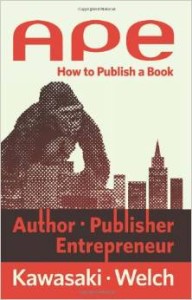
&
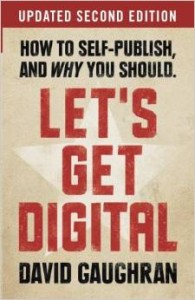
These two books cover similar territory, so I thought I’d include them here. Both are primarily how-to guides for self-publishing. They explain how to find an editor, how much money to budget, what kinds of marketing are most effective, and so forth. Of the two I’d say Let’s Get Digital was more interesting and useful to me, as it focuses entirely on fiction (while APE is often concerned with non-fiction). Both are worth reading it you’re thinking about getting into self-publishing, though.

